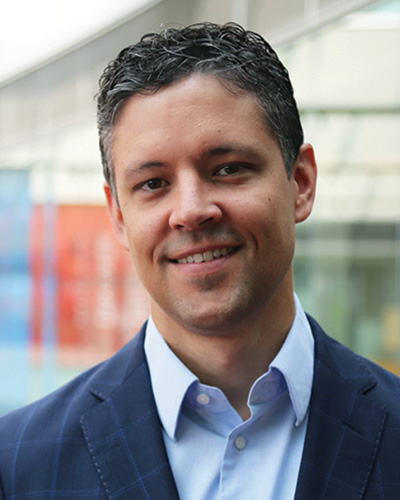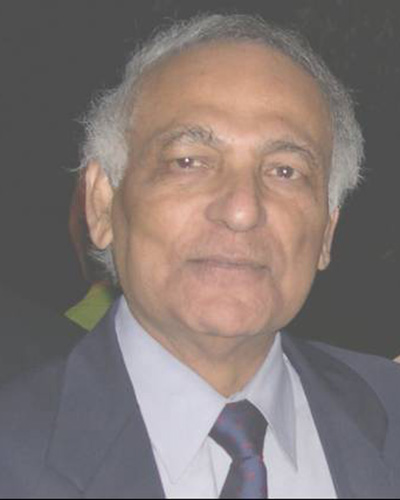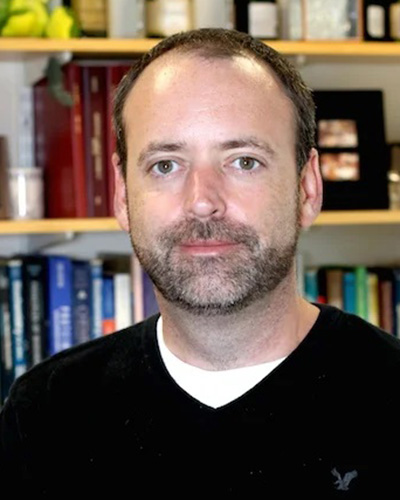Honors for Pagliarini, Sarkar and Thompson
Pagliarini named HHMI investigator

The Howard Hughes Medical Institute recently named 26 new HHMI Investigators, including Dave Pagliarini. Pagliarini will receive approximately $11 million in support over a seven-year term, which is renewable indefinitely pending a successful scientific review. This support includes his full salary and benefits, a research budget, scientific equipment and additional resources.
Pagliarini is a professor of cell biology and physiology at the Washington University School of Medicine in St. Louis. His lab studies how mitochondria operate and the diseases that occur when mitochondria malfunction. His team has a particular interest in defining how these organelles synthesize, use and distribute coenzyme Q to support metabolic and antioxidant cellular processes.
In 2020, Pagliarini received the Earl and Thressa Stadtman Young Scholar Award from the American Society for Biochemistry and Molecular Biology. He has also won the Protein Science Young Investigator Award and the Presidential Early Career Award for Scientists and Engineers. He is a co-chair of the 2025 ASBMB Annual Meeting.
“When scientists create environments in which others can thrive, we all benefit,” HHMI President Erin O’Shea said. “These newest HHMI Investigators are extraordinary, not only because of their outstanding research endeavors but also because they mentor and empower the next generation of scientists to work alongside them at the cutting edge.”
Sarkar awarded Order of Canada

Bibudhendra Sarkar has been appointed a member of the Order of Canada, one of the nation’s highest honors. He was recognized for advancing medical research in Canada and abroad, including his work bridging scientific research and clinical care at the Hospital for Sick Children, known as SickKids, affiliated with the University of Toronto.
Sarkar is a senior scientist emeritus at SickKids. He began his research with metals in biology and medicine in the 1960s and organized and chaired the first international meeting of inorganic biochemistry in 1972. A symposium on inorganic biochemistry in Sweden followed in 1982 under the auspices of the Nobel Foundation where Sarkar was an invited speaker.
Sarkar discovered that copper-histidine can be used to treat the rare genetic condition, Menkes disease. This disease causes neurological and skeletal problems and is caused by mutations in the ATP7A gene, which regulates copper metabolism. He also led an international team of volunteer scientists to produce maps of arsenic and other toxic metals in groundwater in South and Southeast Asia. He is a fellow of the Royal Society of Chemistry, the Chemical Institute of Canada and the International Union of Pure and Applied Chemistry. In 2020, SickKids held a symposium honoring his career.
“Dr. Sarkar is a remarkable scientist and role model for generations of researchers seeking to transform their discoveries into real-world impacts for patients,” Stephen Scherer, Chief of Research at SickKids, said. “We are proud to celebrate his well-deserved appointment to the Order of Canada.”
Thompson receives funding award

BRIDGE Innovation and Business Development at the University of Massachusetts Chan Medical School has awarded Paul Thompson nearly $2 million for his project to develop a PAD2 inhibitor for the treatment of inflammatory disease. This award is given to research projects that hold promise for translation to clinical application and commercialization. Thompson is one of six awardees.
Thompson is a professor of biochemistry and molecular biotechnology. His lab develops chemoproteomic tools for biomarker discovery and chemical probes to target disease-modifying enzymes. Prior to coming to UMass Chan, he held positions at the University of South Carolina and Scripps Florida. Thompson received his Ph.D. in biochemistry from McMaster University and performed postdoctoral work at Johns Hopkins University.“The projects selected for funding all have great potential for advancing their respective fields of research and the promise of advancing optimal therapies for affected patients,” Joe Sypek, scientific advisor for the Lupus Research Alliance and former Takeda Pharmaceutical Company Limited and Pfizer executive, said. “I’m hopeful that collectively these funded research efforts will provide both better insights and benefit to achieving the best possible in-patient care and medicine.”
Enjoy reading ASBMB Today?
Become a member to receive the print edition four times a year and the digital edition monthly.
Learn moreGet the latest from ASBMB Today
Enter your email address, and we’ll send you a weekly email with recent articles, interviews and more.
Latest in People
People highlights or most popular articles

2026 ASBMB election results
Meet the new Council members and Nominating Committee member.

Simcox wins SACNAS mentorship award
She was recognized for her sustained excellence in mentorship and was honored at SACNAS’ 2025 National Conference.

From humble beginnings to unlocking lysosomal secrets
Monther Abu–Remaileh will receive the ASBMB’s 2026 Walter A. Shaw Young Investigator Award in Lipid Research at the ASBMB Annual Meeting, March 7-10 in Washington, D.C.

Chemistry meets biology to thwart parasites
Margaret Phillips will receive the Alice and C. C. Wang Award in Molecular Parasitology at the ASBMB Annual Meeting, March 7-10 in Washington, D.C.

ASBMB announces 2026 JBC/Tabor awardees
The seven awardees are first authors of outstanding papers published in 2025 in the Journal of Biological Chemistry.

Decoding how bacteria flip host’s molecular switches
Kim Orth will receive the Earl and Thressa Stadtman Distinguished Scientists Award at the ASBMB Annual Meeting, March 7–10, just outside of Washington, D.C.
